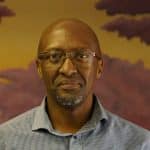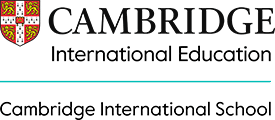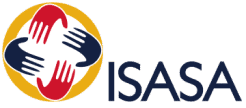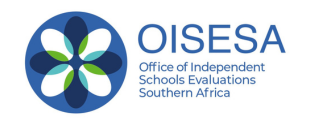Content shared by Mr. Phillip James, Head of Key Stage 3, International School of Cape Town

Although there are some similarities between the South African high school curriculum and the UK curriculum, there are also key differences such as the KS3 structure, assessment aims and curricular focus.
Mr. Phillip James
Key Stage 3 – Age and Year Groups
At ISCT, similar to in the UK, children start their schooling at age 4 in Nursery (referred to as KS1), followed by Reception age 5 compared to the first year of schooling in South Africa at age 6. Instead of grades, we refer to year groups as Year 1 – 12(AS level/13 A Level) similar to the UK.
Key Stage 3 (KS3) consists of Year 7, 8 and 9 – the first three years of high school. This is a significant difference to most South African schools where students start high school in Year 8. This extra year allows students additional time to settle into the structure and expectations of the Key Stage.
See the comparison below:
| Age | Year (UK/ISCT) | South Africa (Grade) |
|---|---|---|
| 4 | Nursery | |
| 5 | Reception | |
| 6 | Year 1 | 1 |
| 7 | Year 2 | 2 |
| 8 | Year 3 | 3 |
| 9 | Year 4 | 4 |
| 10 | Year 5 | 5 |
| 11 | Year 6 | 6 |
| 12 | Year 7 | 7 |
| 13 | Year 8 | 8 |
| 14 | Year 9 | 9 |
Aim of Key Stage 3
Our core purpose in KS3 is to offer a curriculum that is international, diverse, exciting and challenging. Different from the basic South African curriculum, we endeavour to connect to and build on the knowledge, understanding and most importantly the skills developed during KS1 and KS2. This connection across the key stages allows us to prepare our students for the exciting and ever-changing world of work in the 21st century.
Curriculum
We offer a broad range of subjects at KS3, including the below. Our core subjects are English, Mathematics and Science.
| Subject in Year 7 – 9 | ||||
|---|---|---|---|---|
| Art | ||||
| Design and Technology | ||||
| Drama | ||||
| English | ||||
| Geography | ||||
| History | ||||
| ISCT (Computing) | ||||
| Mathematics | ||||
| Modern Foreign Language (French or Spanish) or Afrikaans (Second Language) | ||||
| Music | ||||
| Physical Education (PE) | ||||
| PSHE (Personal, Social and Health Education) – referred to as Life Skills in the South African curriculum | ||||
| Science | ||||
| Biology (offered in Year 9) |
We do not offer EMS (Economic and Management Sciences) included in the South African curriculum due to the nature and scope of our curriculum, however, we have incorporated aspects of Entrepreneurship in our teaching and learning.
In addition to the core and foundation subjects, our students are involved in several project-based learning opportunities including the:
- Year 7 Integrated Lunch where they learn about the history, culture and customs of diverse communities and countries.
- Year 8 & 9 Science Expo where they learn to do scientific research.
- Year 8 Market Day with the focus of developing entrepreneurial skills.
- Year 9 Movie Project where our students learn and explore a range of skills and interests.
At the end of Year 9, students will select the subjects that they will take at IGCSE (Year 10, 11) with the guidance of the Director of Studies and the Learning Support Team. At IGCSE they can begin to specialise in the subjects they enjoy, whilst still experiencing a broad and balanced curriculum.
Assessment for Learning, Exams and Qualifications
Assessment in KS3, like in the UK, is very different from the South African system. We focus on improving the learning of our students to ensure that they become:
- Successful students who enjoy learning, make progress and achieve;
- Confident individuals who are able to live safe, healthy and fulfilling lives;
- Responsible citizens who make a positive contribution to society.
Student progress is measured throughout the year through a range of assessment tools including experiments, projects, assignments, tests and exams. Assessments can either be summative or formative with the goal of allowing us to see what has been achieved and ways in which we can support further learning.
Examinations are written in May/June and October/November of the academic year in all subjects with the exception of PSHE and PE.
Student progress is measured and reported by using a grading system modelled on the IGCSEs ranging from A*, A, B, C, D, E and U, which is different from the South African grading system of 1 – 7. There are specific descriptors for each subject that serve as a roadmap for teaching and learning. Progress reports are issued at the end of each term which will reflect the progress of students using the grading below:
| ISCT | South Africa | What does it mean? |
|---|---|---|
| A* | 7 | Outstanding – performing way above expected |
| A | 6 | Very good – performing above expected |
| B | 5 | Good – performing at expected level |
| C | 4 | Satisfactory – performing at the minimum expected level |
| D | 3 | Requires improvement – performing below the expected level |
| E | 2 | Poor – significantly underachieving |
| U | 1 | Major concern – consistently underachieving |
Keystage 3 at ISCT has some important similarities with the South African curriculum such as a range of extra-mural activities available for students to choose from, exciting inter-house competitions and an academic year that goes from January to December. These similarities and the differences outlined above allow our students to experience a strong start to their high school careers so that they succeed in their desired future endeavours.





